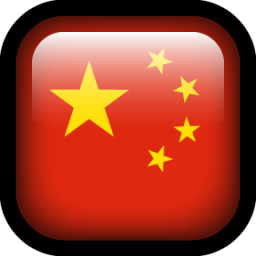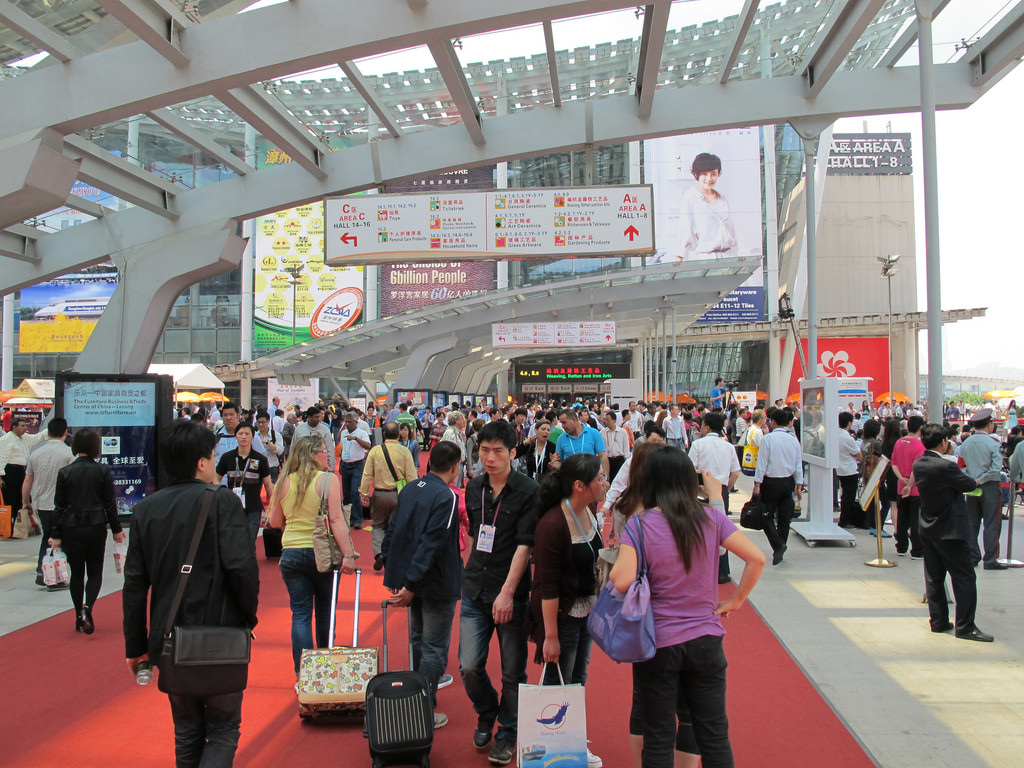How to Promote your Business in China
How does Chinese Market work? How can companies promote themselves without Facebook and Google? How do people survive under huge competition there?
China is -still- a mystery for foreigners. The country means a huge cake, but before entering the market you will need to answer to this and other questions. To make it easier to you, in 2 Open we have taken a brief look of the Chinese market and done a list of the most basic tips you should consider before landing in China.
Gone wrong? It can go much worse
When many companies started their business in China for the first time, the things they used quite a lot in local made no sense in China.
Ebay is one of the biggest e-commerce platforms around the world and a perfect example to explain the experiences many foreign companies face in China. Due to its leadership, the company assumed that its landing in China would be no much different to that experienced in other countries, so in the beginning they refused to establish a partnership with JD.com. The company soon realized there were no more choice but to cooperate with them.
What are the most common problems that foreign companies face in Chinese territory?
Foreign enterprises in China often fall into the same shortcomings we analyze below. Let´s see:
First, Always try to show their high-end enterprise images
Foreign enterprises always show their best face: high-quality services, responsible attitude, respect to the customers… and so on. But in China, price is the key and can always be the KPI which attract the customers’ sight immediately.
Second, Focus on high-end target audiences but ignore the rapid growth of China
When companies like Blueberry entered China, they set the target group to those corporate users. As the earliest and past No.1 smart phone, Blueberry had already been famous in China. But within 7 years (2006-2013), they retreated from China and closed their Chinese official website.
When Huawei set off their business, what they did was to set the target audiences as all people who want smart phone. Since the average income of Chinese people is increasing, so that more and more can afford a smart-phone. Huawei was right about its strategy.
Third, Copy the promotion strategy directly to China
Many foreign companies would prefer to make a wonderful advertisement, an amazing poster and advertise in the subway stations, supermarkets… and everywhere. But they always find out that the ROI is quite low, since they might only get 1 customer for a 100 RMB budget. Does it outweigh? We don´t think so.
In China, since the civil quality is still on a shallow level, what the customers care most is whether they are interested in, but not what is a good design. That is why when Taobao.com stepped out their first step, they even promoted on some illegal websites which had huge traffics every day.
Fourth, Think too much about customers but ignore what the customers are thinking about ICQ. The instant messaging software also failed in China!
The U.S. companies are always stricts on protecting the users’ privacy. With such a policy, users can’t find the chat record if they log in on another PC, since the software will not memorize or save these records in order to protect the privacy to the most degree.
Its counterpart in China, Ma Huateng, found out this fault which doesn’t fit the Chinese users’ requirement. In response he created QQ, which is based on the technology of ICQ and make this software become the most-used IMS in China.
Fifth, Rely too much on the Western promotion ways, companies do not want to do things directly
E-mail, Mail and SMS promotion require low budget and have huge audience quantity. Well, they do not make sense in China. For many Chinese people, it is absolutely offensive if they receive advertisement in these channels since they have watched and received too many advertisements already. Moreover, for most Chinese these all are considered private.
They don’t like to be bothered by anything they don’t even know. In China, what people prefer is face to face, no matter if it is for sales promotion or negotiation. The Chinese only trust the people in real life. That’s why when Zhou Hongyi took the responsibility of Yahoo China, he fired all employees who only did E-mail promotion but never visited the clients.

What should you do, then?
First, Pay attention to Chinese culture
Chinese culture is totally different comparing with the Western cultures. Different political systems, different History, different religious beliefs. Thus, the culture strike shows extremely seriously in China.
Your company should do its best to avoid the culture strike and assume their role. We suggest you yo have a look to Lancôme experience in China.
Second, Explore the Chinese consumer behaviour and preferences
Knowing the Chinese consumer behavior and their preferences make the difference. What are the KPIs to attract them? What they care the most? What they pay less attention to? What channels they prefer to get promotion information?
All these questions need to be taken into account when setting up the marketing strategy in China.
Third, Know the correct channels
Due to the firewall in China, many foreign websites (Google, YouTube, Facebook, Twitter, etc.) are not allowed in the China mainland. Thus, use Chinese sources.
Fourth, Speak that language
Chinese people still prefer to speak Chinese. So, when doing business with them, try Mandarin: it is always more than welcome.
There are still lots of thing we need to explore and learn about China. In search of an Ecommerce and Digital Marketing Agency?
This article has been edited by Paula Vicuña, from 2 Open.
Is China becoming more open for imported goods?
Despite its enormous potential, in China the ease of doing business experiences a lightning-fast evolution.
Trade in China still suffers from some difficulties that require a certain courage by those who seek success in the country.
Such evolution is aimed at providing increasing facilities for the establishment of trade relations in the country but, according to World Bank´s report, it still keeps the 84th position on the ranking.
What are the main challenges a foreign company must face in its landing in Chinese territory?
From 2 OPEN we have elaborated a guide with some basic steps to face the first stage of procedures, certifications and regulations any company need to face before entering on Chinese market.
Goods import: Are them all allowed in China?
The Chinese government has established in its Foreign Trade Law some basic categories over the import of goods.
However, not all goods are accepted by law; in every approach to the country, we must consult in the Catalogue Of Goods Prohibited from Export and Import.
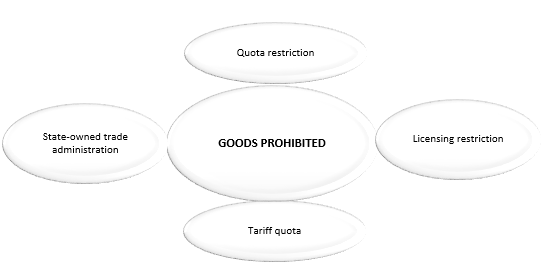
Some enjoy specific requirements: Tariff quota is only available for licensed importers, and State-owned trade administration must be imported by authorized enterprises.
There are also some other terms to test: certifications, packaging, labelling, transportation…From 2 OPEN we can help you to face all the specific bureaucratic procedures involved in any approach to Chinese market.
Standars
Some goods may require specific certificates, registration by Chinese authorities or labelling requirements.
Standars varies depending on the levels, profession and industry your company comes from.
Being aware of the specific needs of our goods will facilitate the following steps for a successful importation into the country.
Importers, a key entrance
Whether your entry into the country is done in an autonomous manner or with the help of a qualified external importer, in both cases will be required to have a Foreign trade operator.
Remember that only those companies already ratified in China as a Foreign Invested Enterprise are able to get the permission to become a Foreign Trade Operator.
In case you prefer to have the assistance of an external operator, try to avoid surprises!
The Ministry of Commerce of China provides an official list of importers where you can find the most suitable to your company needs.
Warehouses and declaration procedures
Procedures will change depending on a set of variables, but the very basic requirement is The Customs Declaration Form of Imported Goods.
A specific stamp will be used for every Bonded warehouse goods coming into Chinese territory.
In case import goods change their formal bonded warehouse, particular formalities for custom transit and transport will be required.
Attending to a fair?
If your company is thinking on attending to any special exhibition in China, there is also specific legislation according to temporary import goods. Temporary goods are those which are planned to be in China for less than six months for specific reasons, such as fairs or expos.
Those goods should be approved by the authorities, and usually a deposit will be required.
The landing in the country requires of the understanding and the expertise of an expert team in China environment.
From the company, we have assisted companies from different fields to develop their business in Chinese market.
Let us lead your company into China!
2016 Springtime At The Canton Fair
The Canton Fair, held since 1957 in the city of Guangzhou, is currently the largest International Trade gathering in China, and the most successful one in the country. In Spring and Autumn, and for fifteen days, the city brings together importers and exporters from all over the world.
Its 2016 Spring celebration, divided into three sessions of five days each, aims to meet the demands of any business person: Electronics and Household Electrical Appliances; Lighting Equipment; Vehicles and Spare Parts; Machinery, Hardware and Tools; Building Materials; Chemical Products, Energy Resources; Consumer Goods; Gifts; Home Decorations; Textiles and Garments; Shoes; Office Supplies, Cases and Bags; Recreation Products; Medicines, Medical Devices and Health Products; and also Food.
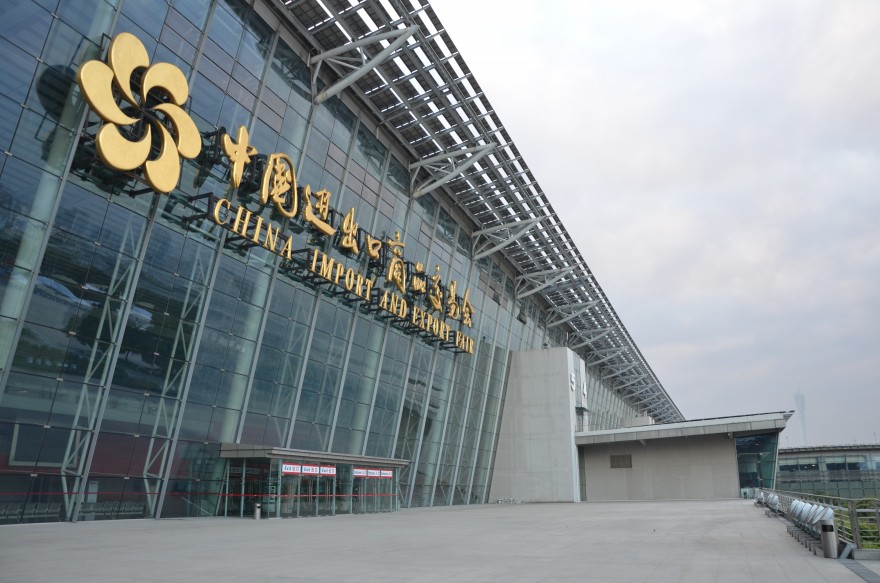 But why exactly is this event so appealing?
But why exactly is this event so appealing?
Well, with 15,000 manufacturers and fabricants, and over 60,000 stands, it’s not a surprise that it has gained such popularity, besides, its ability to accommodate all of them and generate new trade flows makes it the largest fair in China, and probably in Asia.
Those who attend The Canton Fair can find answers to all of their business needs: economic, technical and human cooperation; logistics, transportation and distribution; insurance and commodity inspection; advertising, public relations and contacts with some of the most buoyant businesses today, you name it.
Its attractiveness is also equal to its capacity to generate wealth among its members: only in 2015, commercial exchanges reached 55.066 million USD.
Who attends to the Canton Fair?
Despite the uncertainty in the global economy and after a slight decline in the last two years, 2016 has been considered a good year to participate in the Canton fair. With more than 24,000 companies confirmed, optimism among the organizers and participants has returned to stay and strengthen the fair’s position as an already global event.
Although the event’s main target group were Asian buyers, in recent years, the presence of Westerners has grown significantly becoming a meeting of international nature in which the presence of developing regions such as India, Latin America and Africa has also increased. Curiously enough, the presence of participants from Hong Kong and Taiwan has been reduced each year.
What are the benefits of the Canton Fair?
Firstly, the continuous and growing exchange of goods between participant countries facilitates the development of the Chinese trade, and consequently, strengthens the Chinese economy.
Secondly, the Canton Fair celebration generates high-level synergies, not only among the participants but also among outside companies. The fair generates quality information on the future of the economy, the most demanded products, leading companies and, goods and services.
Finally, due to its attraction capacity and longevity, the fair has contributed to develop a wide range of alternatives for visiting and enjoying the tour: visas, tickets, hotels and translators are easy to obtain through specialised agencies.
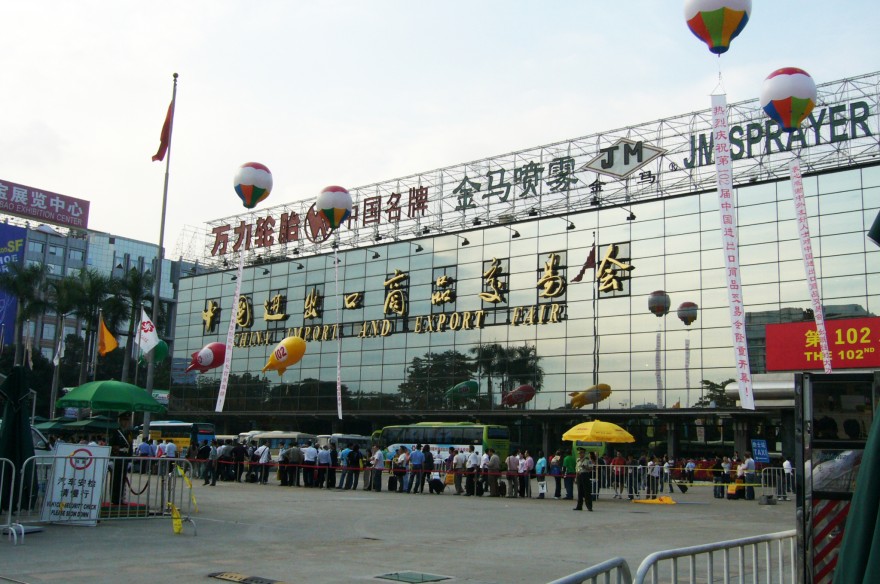
2Open attends every year to both the Autumn and Spring Canton Fairs, being up to date with what is happening in China is a challenge even for our dedicated team who are constantly on the scout for new trends in the industry. We strongly advice anyone who is intending to engage in any business related activities with China to attend this event, it is a great opportunity to grow any business, however, if you want to really turn your business around you should contact 2Open.
Our goal is to understand our clients business needs in order to provide the best possible services. If you have any questions or require any information about our services, please do not hesitate in contacting us, our group of specialists will happily assist you.
This article was edited by Andres Arroyo Olson from 2Open.
Jumpstart your E-commerce business in China
E-commerce in China is growing so rapidly and it appears to have big rewards for those who manage to thrive in the market. Problems for companies who want to enter China arise due to limited knowledge about the Chinese market and the variety of e-commerce platforms, but how exactly should you start your e-commerce business in China? Where should you start?
Indeed, there are countless B2C (Business-to-customer) e-commerce platforms in China, Tmall/Taobao are in the leading position, followed by JD, then VIP.com, Suning, Gome, Dangdang, YHD, Amazon China, and so on. Usually each platform has a deposit, some annual fees, and commissions. If your are starting your e-commerce business opening a Tmall/Taobao shop first would be a smart move from your part, later, when your business grows, you could extent and broaden your sales channels. You might be wondering, Why Tmall/Taobao? Why here and not in other platforms?
Firstly, let us look at this from an investor’s point of view, minimizing initial investment. For a Tmall shop different products and shop types have different deposit amounts that range from 50,000 RMB to 150,000 RMB. The annual service fees are 30,000 RMB or 60,000 RMB depending on the category, they may be half or totally refunded if the business is good enough to reach certain revenue. As for the commissions, different categories also have different commission rates, commissions in Tmall start from 0.5% to 5%, this is quite competitive since other usually range from 10% to 15%. After all, Tmall is mainly an open platform for all vendors.

Some small companies or cautious companies should consider starting with a Taobao shop. Taobao is supposed to be a C2C platform, since its requirements, compared to the ones of Tmall, are considerably lower, some small companies opt to start with a Taobao shop first. Why is this option so appealing to small companies? There are two types of Taobao shops to choose from, the first one is owned by a person and the second one is owned by a company. The personal Taobao shop can be upgraded into a company account if the owner is the legal representative or a shareholder. The best thing about Taobao is that it is free, you only need 1000 RMB as the deposit and Taobao has no annual fees or commissions. For those who are really cautious or lack resources, this might turn out to be a wise choice.
Secondly, let us analyse the human resource factor. You might have agencies working for you or maybe a few employees; however, trying to start with all channels at once may not always be the best option for your business. To successfully manage an e-commerce shop it takes dedication and time, even though opening a shop is not a difficult task, managing that shop is. Analyse, optimize traffic and content, and increase sales is something that requires time and focus. The target is to turn those open channels into productive channels, it is worth mentioning that most of these e-commerce platforms are similar or even copy Tmall/Taobao, so getting familiar with platforms is kind of like getting familiar with the e-commerce industry in China.
How is the e-commerce environment looking in China? Tmall/Taobao have been leading the free traffic in China for years, each day there are more than 40 million visitors on Taobao. Even Suning, Dangdang, YHD and Amazon China now opening their shops on Tmall.

As for the payment side, Taobao/Tmall have their own payment method, Alipay. With more than 0.3 billion registered users, 0.27 billion active users, and links to over 180 banks both in China and other countries, Alipay is the largest third party online payment platform in China, some active users even use Alipay to pay for their home power, gas and water fees. It makes it easier for consumers to pay.
Finally, let us discuss product control. Since Tmall/Taobao are mainly open platforms, vendors have almost fully control of their products. You can categorize the type of product your selling, upload or remove it anytime you want and also have full control of the price and logistics company you want to use to deliver your products.
So if you are planning on entering the Chinses market through e-commerce you might want to start with a Tmall or Taobao shop first. Here at 2Open we specialize in digital marketing and e-commerce, our goal is to understand our clients business needs, in order to provide the best possible services. If you have any questions or require any information about our services, please do not hesitate in contacting us, our group of specialists will happily assist you.
This article was edited by Andres Arroyo Olson from 2Open.
References:



